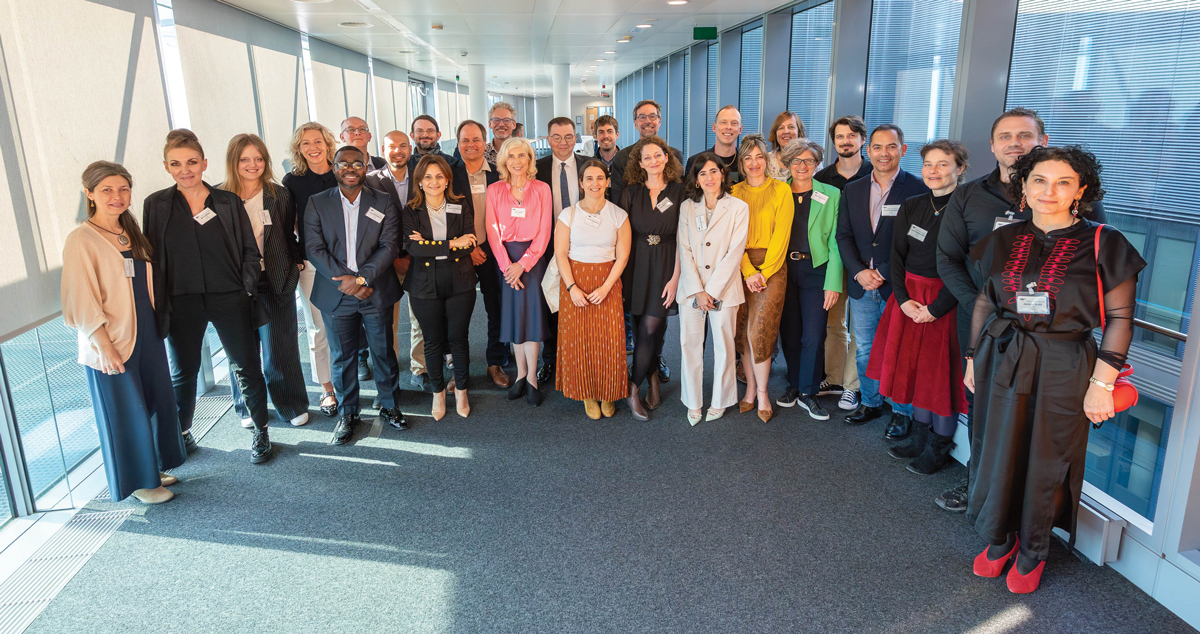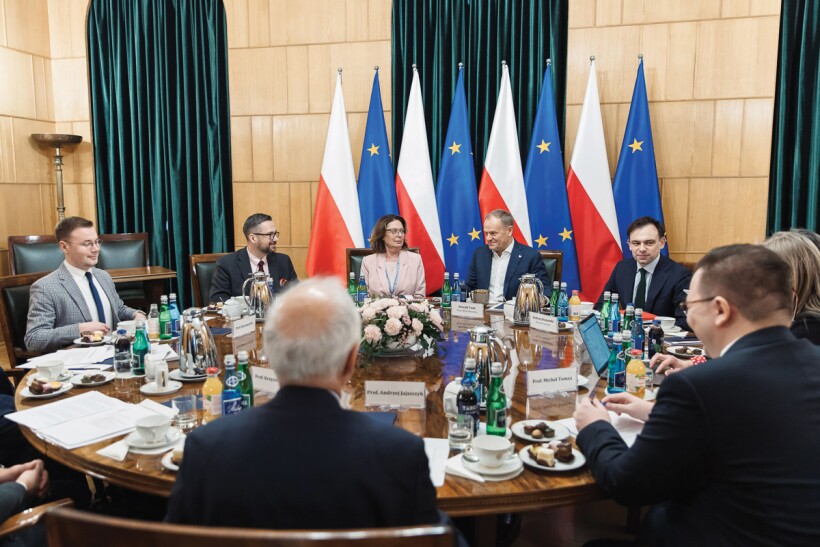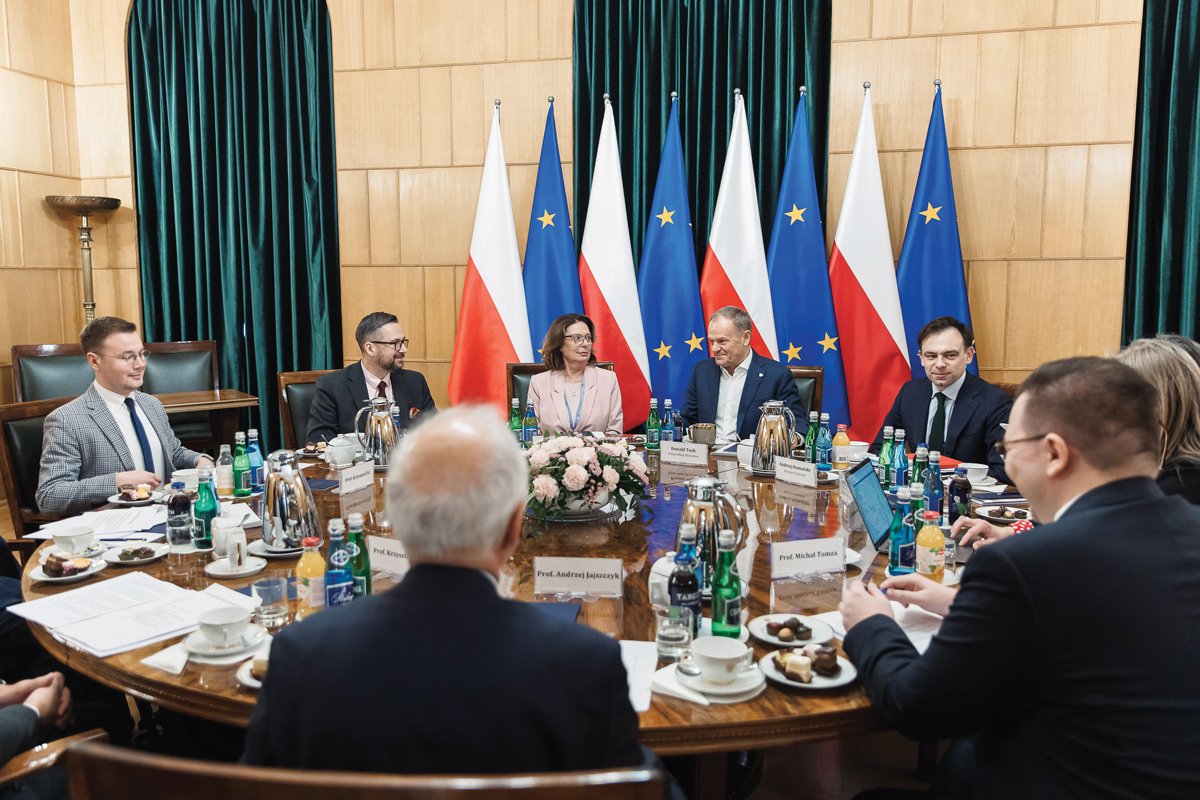Scientist-ambassadors promote science in Europe
DOI: 10.1063/pt.fkil.tinr

European Research Council ambassadors at a launch event in Brussels on 28 April. (Photo © ERC.)

A bevy of researchers is setting out to raise the profile of science among purse-string holders and the public across Europe. Former or current recipients of prestigious European Research Council awards, they serve in the Ambassadors for the ERC program launched in April jointly by the council and the Association of ERC Grantees.
The volunteer positions were competitive: The first cohort of 32 was chosen from more than 200 applicants. Samantha Christey, who heads the global outreach and stakeholder relations unit of the ERC communications department, says that the aim is to have one or two ambassadors in each of the 46 countries—the 27 European Union members and 19 associated countries—that are eligible for ERC grants.
Ideally, Christey says, ambassadors will also represent the fields the ERC funds and the different awards it offers. Known for their generous size and for their support of topics driven by scientists, the grants span the physical and life sciences, engineering, social sciences, and humanities.

Scientists meet with government leaders in Poland in February 2025. The political leaders are (starting second from left of front-facing people): Marcin Kulasek, minister of science and higher education; Małgorzata Kidawa-Błońska, marshal of the senate; Donald Tusk, prime minister; and Andrzej Domański, minister of finance. Michał Tomza (lower right corner), now an ERC ambassador, was one of the half dozen scientists in the room. (Photo from the Chancellery of the Prime Minister of Poland.)

The individual ambassadors are, together with the Association of ERC Grantees, “co-inventing the program as we go,” says association president Axel Cleeremans. Activities will take place at the local and national levels; ideas floated so far include holding events along the lines of TED Talks, meeting with policymakers, collaborating with national funding bodies, and publishing open letters. The ERC is offering the ambassadors training in science communication, with a focus on social media.
For Michał Tomza, who heads the quantum molecular systems group at the University of Warsaw’s Institute of Theoretical Physics, becoming an ERC ambassador was a natural extension of his ongoing activities. This past February, for example, he met with Poland’s prime minister to promote science. “We are trying to make society more aware of how important science is, and what the public gets from it.”
“If you want a revolution, you need long-term investment,” says Jan Lagerwall, a physicist who focuses on liquid crystals at the University of Luxembourg. He became an ERC ambassador because of his love of outreach and his concern “that science is under threat in a crazy way.”
The ERC ambassador program also aims to foster networking among grantees and to gather information about how the awards are encouraged in different countries. “In some cases, institutions don’t offer support to scientists who want to apply,” says Cleeremans. “The association could help. The goal is to collectively think about how to improve the experience of competing for and having ERC grants.”
This article was originally published online on 1 July 2025.
More about the authors
Toni Feder, tfeder@aip.org





